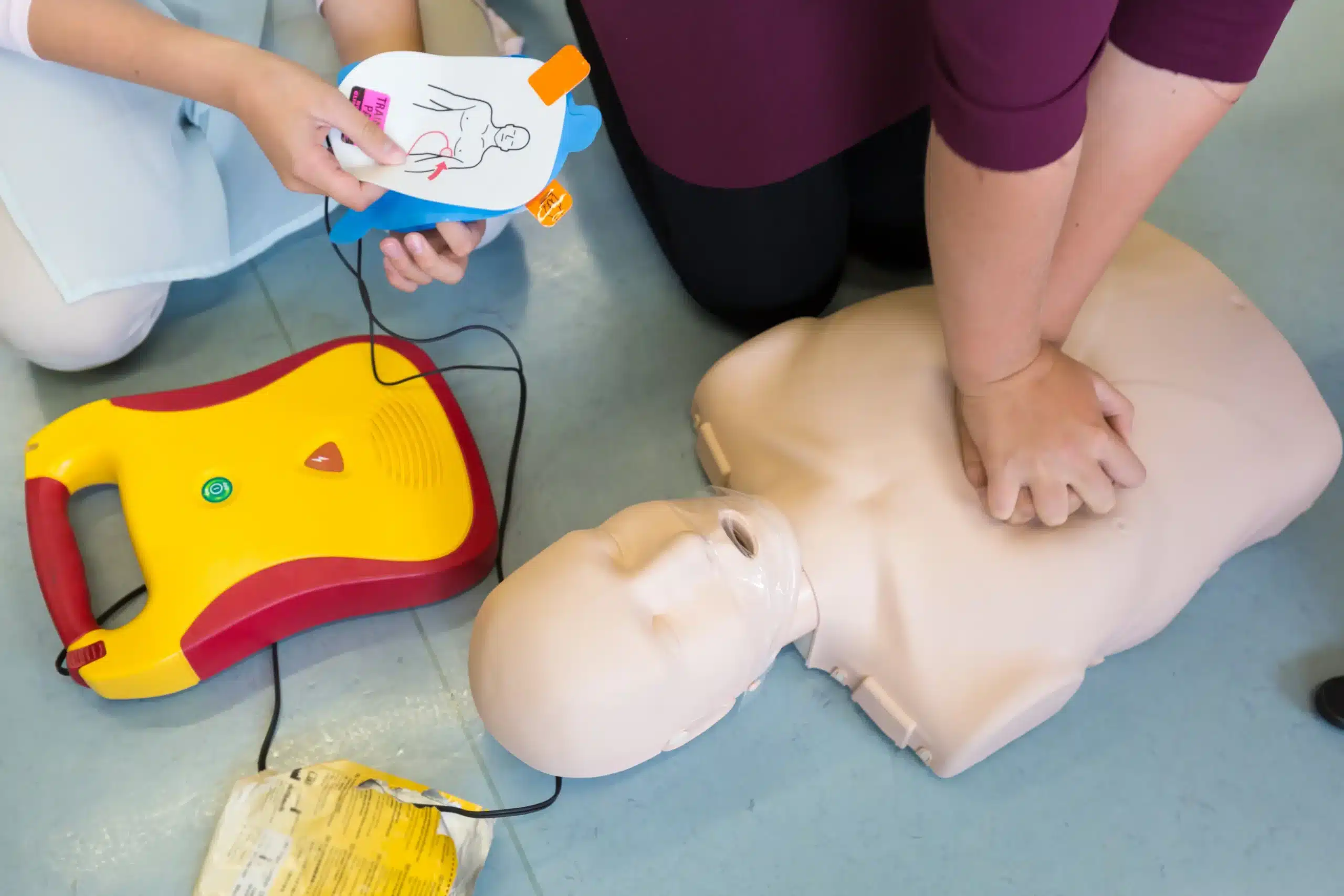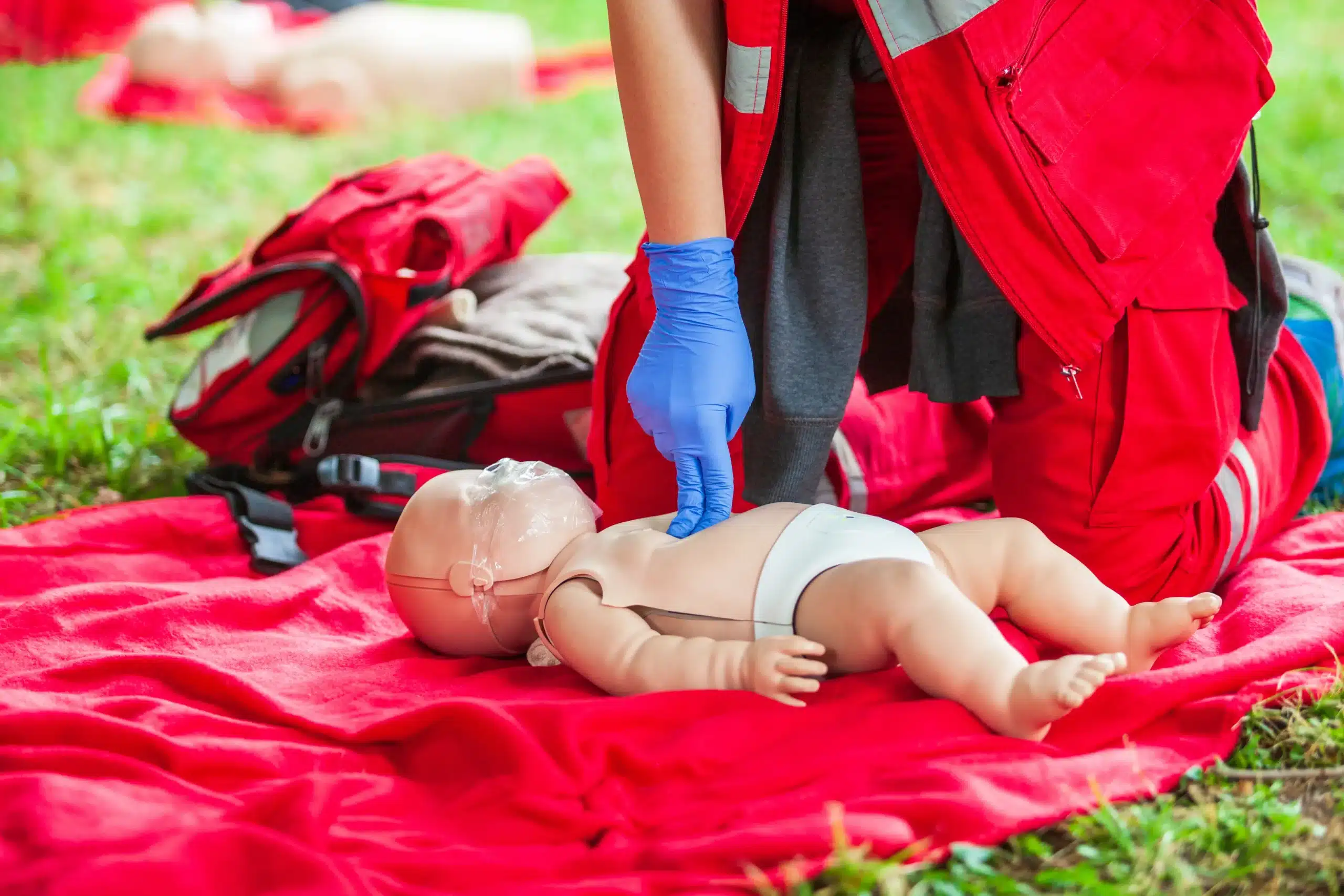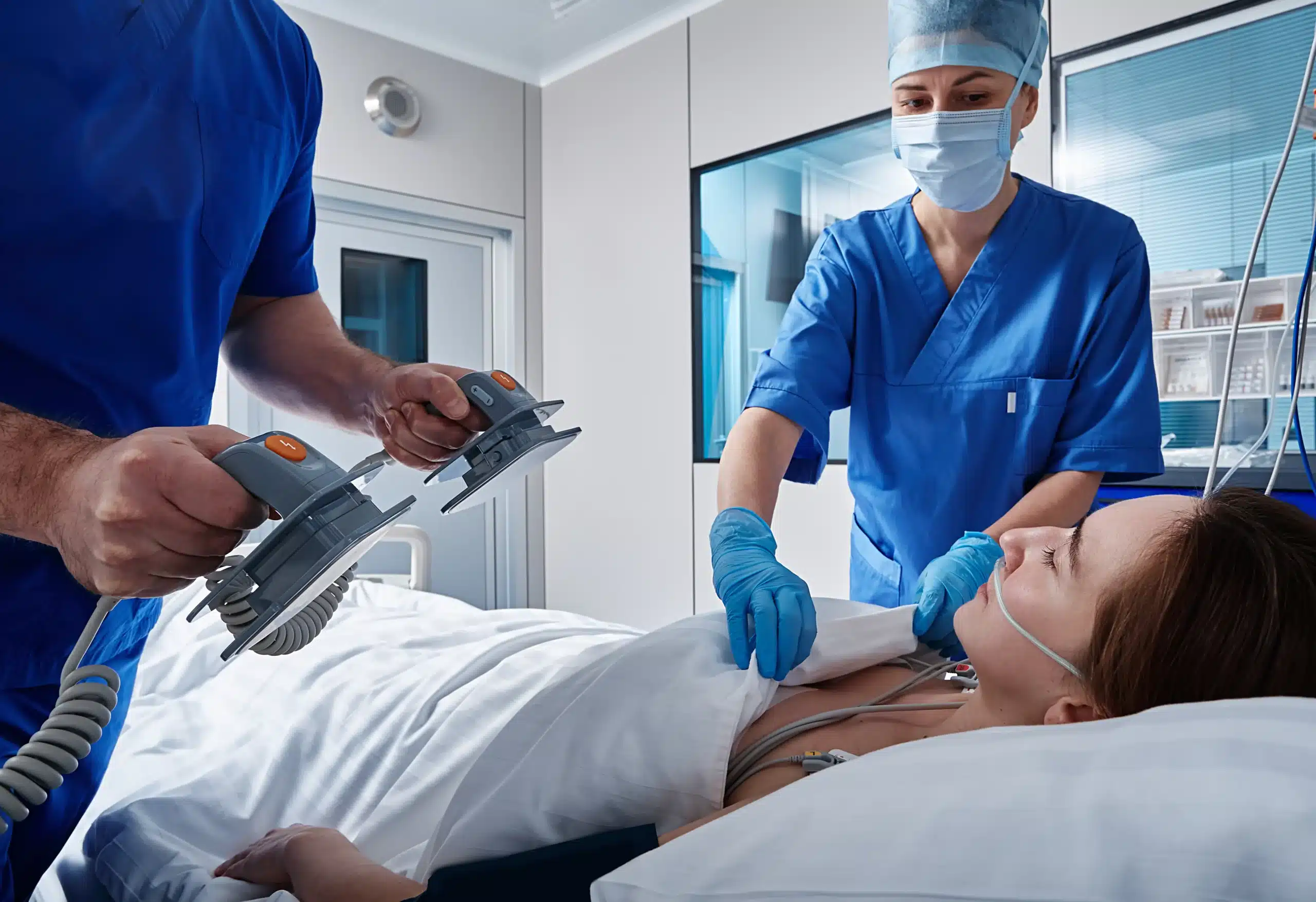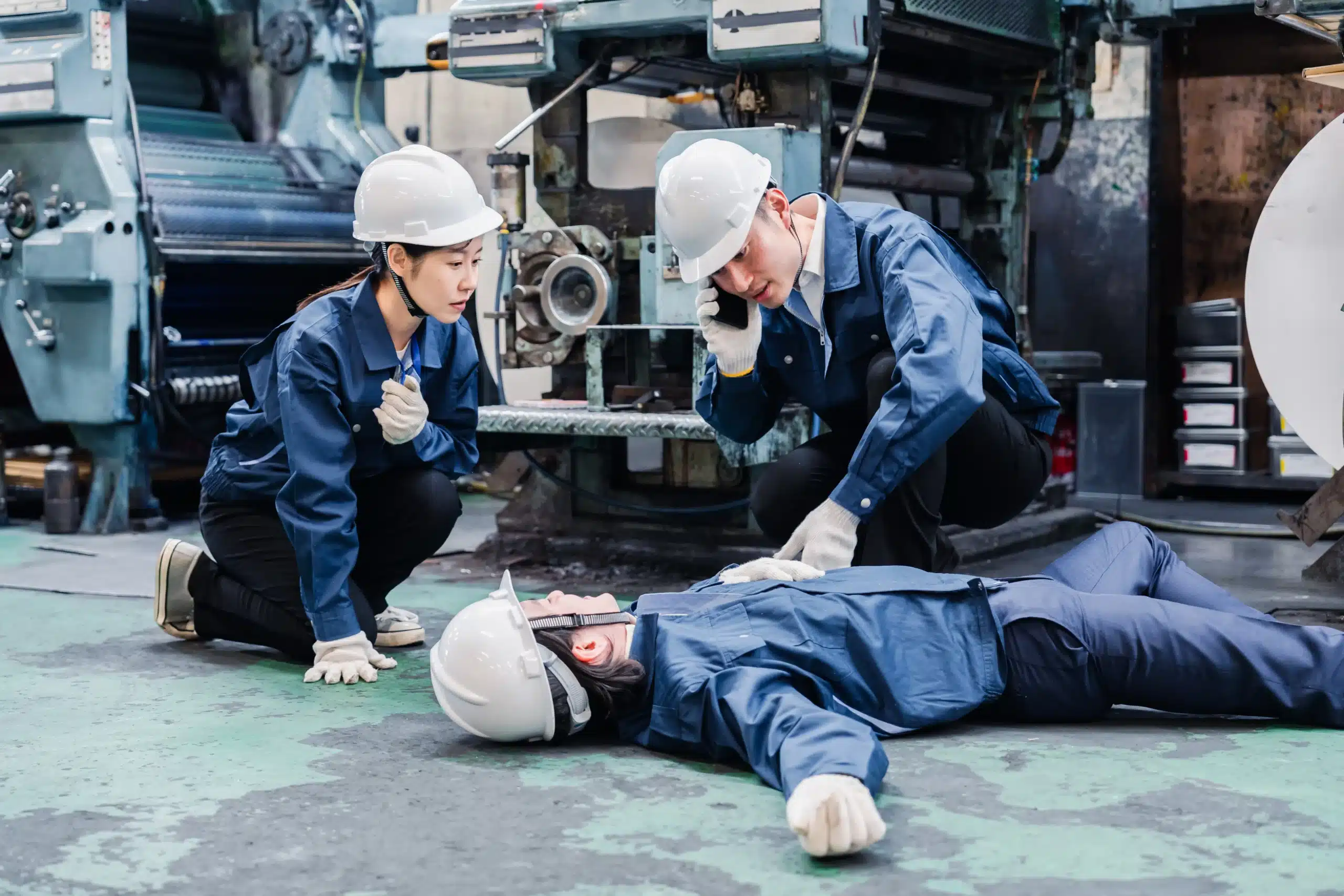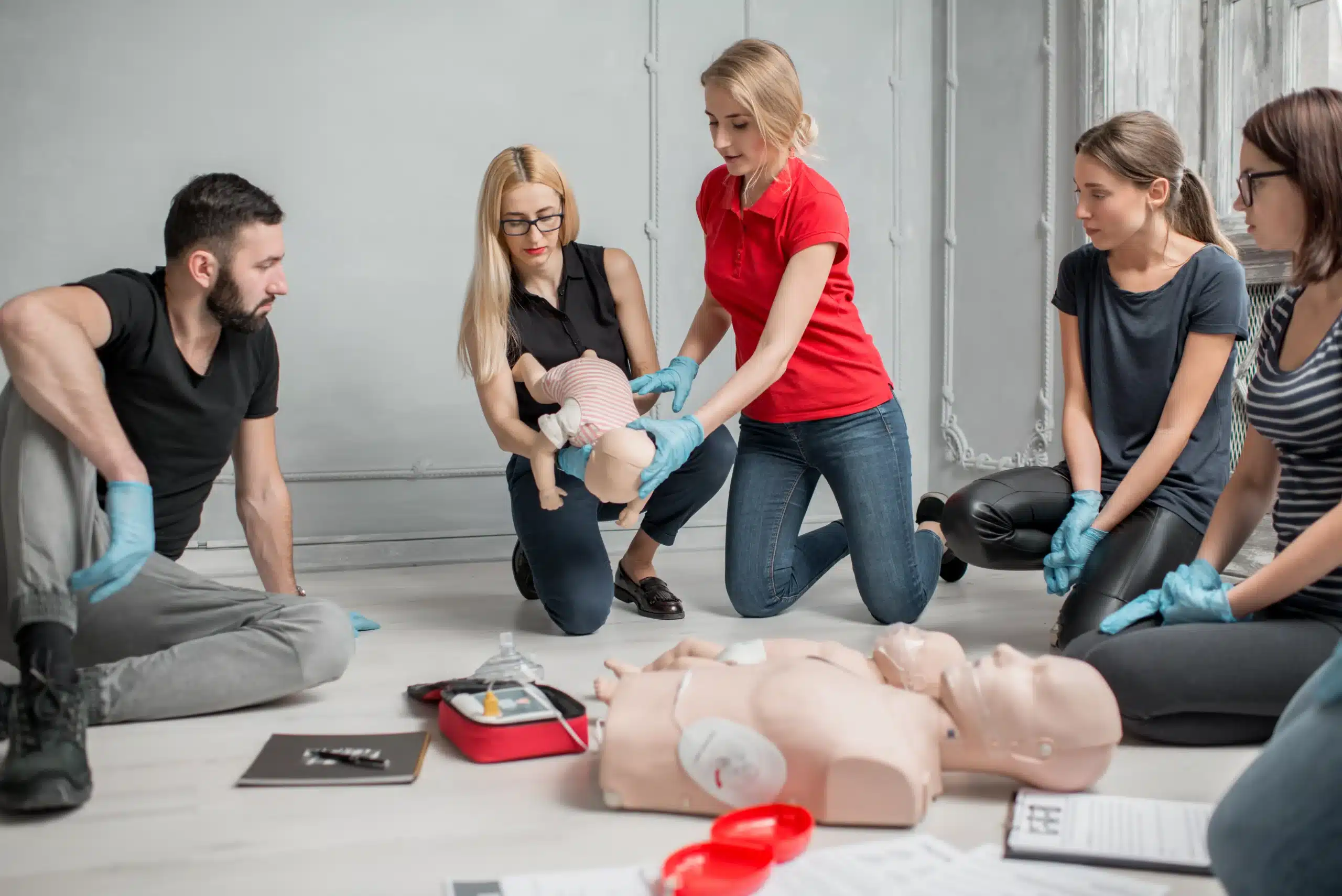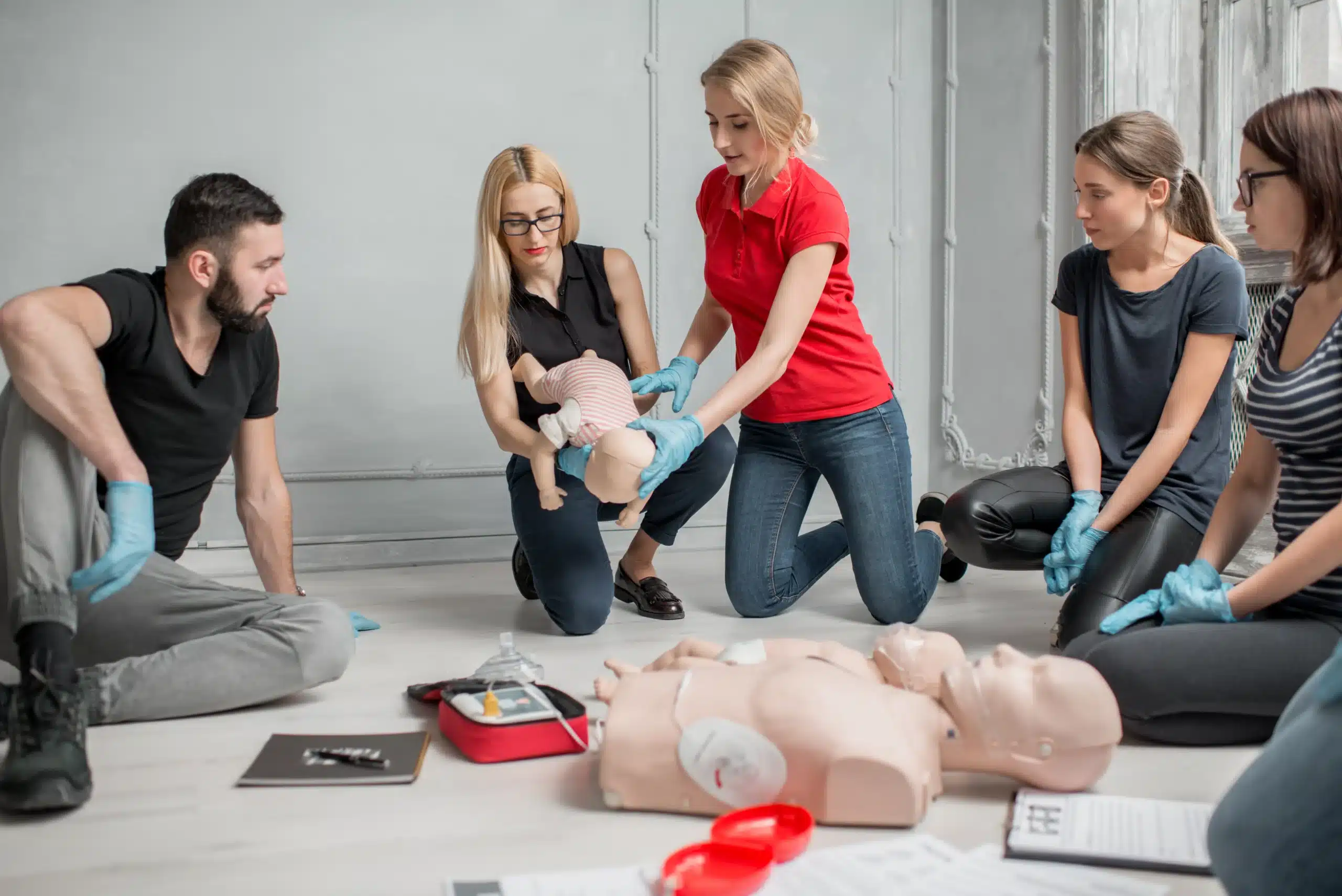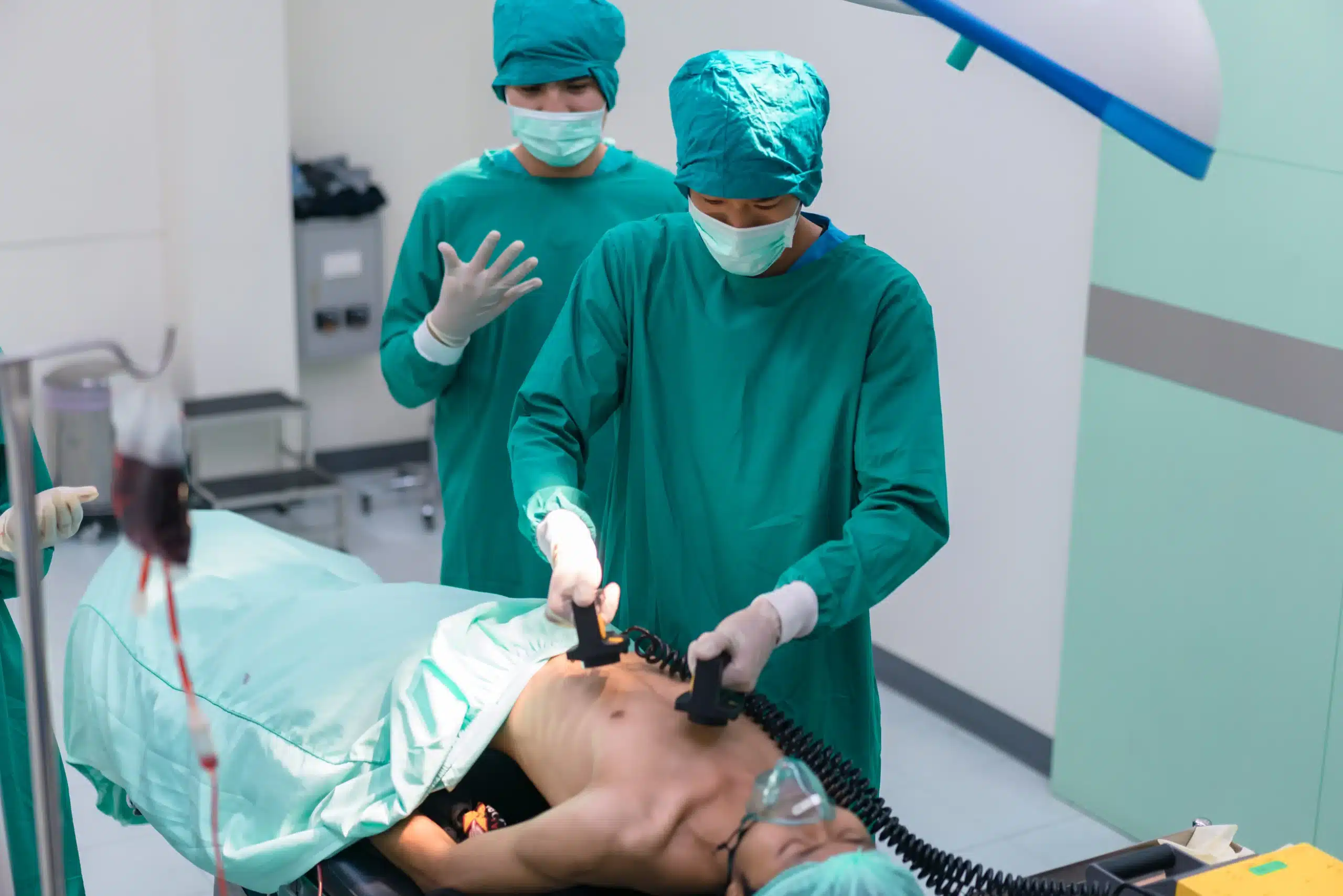When it comes to cardiac emergencies, every second counts. Healthcare providers need to be prepared to act quickly and decisively, and that’s where Advanced Cardiovascular Life Support (ACLS) training plays a vital role. Finding the right ACLS courses in San Jose can be a crucial step in advancing your career and enhancing your ability to provide exceptional patient care. This guide will provide you with a comprehensive overview of ACLS certification in San Jose, covering everything from course content and costs to student experiences and provider reputation. We’ll also delve into the different types of ACLS courses available, including initial certification, renewal courses, and hybrid options, to help you make an informed decision.
Key Takeaways
- ACLS is crucial for healthcare professionals: It builds advanced life-saving skills and strengthens emergency response, leading to better patient outcomes. Find a course that suits your learning style and schedule.
- Finding the right ACLS course in San Jose is easy: Explore reputable providers like Safety Training Seminars and Milpitas CPR Classes, considering factors like cost, schedule, and instructor experience.
- Proper preparation ensures ACLS course success: Completing pre-course work, reviewing study materials, and understanding prerequisites will set you up for a positive and productive learning experience.
What is ACLS?
ACLS stands for Advanced Cardiovascular Life Support. It’s a set of guidelines and protocols designed for healthcare providers to manage cardiac emergencies. These emergencies can include cardiac arrest, stroke, and other life-threatening conditions. These guidelines provide healthcare providers with the knowledge and skills to respond effectively in these critical situations. ACLS training is crucial for professionals who might encounter these types of emergencies, ensuring they can provide high-quality care. The training covers both theoretical knowledge and practical skills, preparing participants to handle real-world emergencies confidently. ACLS certification demonstrates a commitment to providing effective care and can enhance career opportunities. Whether you’re a new clinician or an experienced practitioner seeking recertification, ACLS courses are available for various career stages.
Where to Find ACLS Courses in San Jose
Finding the right ACLS course in San Jose can feel overwhelming with so many options. This section highlights reputable providers and resources to simplify your search.
Safety Training Seminars
Safety Training Seminars offers various AHA-certified courses, including ACLS. Located in San Jose, they prioritize high-quality training and offer flexible scheduling to accommodate busy schedules.
Milpitas CPR Classes
Milpitas CPR Classes collaborates with Safety Training Seminars to provide AHA-certified BLS, ACLS, PALS, and CPR courses. Offering classes daily, they ensure accessible training in Milpitas and nearby cities, including San Jose and Santa Clara.
CPR Training Center
The CPR Training Center provides AHA ACLS certification in San Jose for both initial certification and recertification. They emphasize hands-on training, crucial for mastering ACLS skills, and offer flexible scheduling.
American Heart Association Training Center
The American Heart Association offers ACLS classes in San Jose, designed for healthcare providers at all career stages. Training directly through the AHA often ensures you receive the most current information and techniques.
Local Hospitals and Medical Centers
Many local hospitals and medical centers in San Jose offer ACLS training, often for their staff. Some may extend courses to the public. Also, explore options at local colleges and universities with nursing or health sciences departments, as they frequently offer ACLS certification. Contacting these institutions directly can provide helpful information on course availability.
ACLS Course Types and Expectations
Whether you’re a first-time ACLS student or an experienced healthcare provider looking to recertify, understanding the different course types and what to expect can help you choose the best option. Let’s break down the various ACLS courses available in San Jose.
Initial Certification
The initial ACLS course provides a foundational understanding of advanced cardiovascular life support. This comprehensive course covers essential algorithms, pharmacology, and team dynamics required to manage cardiopulmonary arrest and other cardiovascular emergencies. These courses cater to healthcare providers at all levels, from those just starting their careers to experienced professionals seeking initial ACLS certification. You can find initial ACLS certification courses in San Jose through various providers.
Renewing Your Certification
For healthcare professionals whose ACLS certification is nearing expiration, renewal courses are available. These courses refresh your knowledge and skills, ensuring you stay up-to-date with the latest guidelines and best practices. ACLS renewal courses often cover the same core content as the initial certification, with an emphasis on reinforcing key concepts and addressing any updates. Many providers offer combined initial and renewal courses, streamlining the process for both new and returning students.
Hybrid and Online Options
Busy professionals will appreciate the flexibility of hybrid and online ACLS courses. These blended learning programs combine online modules with in-person skills sessions. The online portion allows you to learn the theoretical material at your own pace, while the hands-on component ensures you develop the necessary practical skills. HeartCode ACLS is a popular hybrid option that offers a convenient way to complete the cognitive portion online before attending a skills check and testing session.
Course Content and Curriculum
ACLS courses follow a standardized curriculum developed by the American Heart Association. The curriculum emphasizes a systematic approach to patient care, focusing on early recognition and intervention in cardiovascular emergencies. You’ll learn essential algorithms for managing cardiac arrest, stroke, acute coronary syndromes, and other life-threatening conditions. The ACLS curriculum also covers effective team communication and coordination, crucial for successful resuscitation.
Hands-On Training and Simulations
A significant portion of ACLS training involves hands-on practice and simulations. You’ll work with realistic mannequins and medical equipment, practicing essential skills such as airway management, intravenous access, and medication administration. These simulations provide a safe environment to develop your skills and build confidence in managing real-life emergencies. Providers like Safety Training Seminars offer comprehensive hands-on training, ensuring you gain the practical experience to apply your knowledge effectively.
ACLS Course Costs & Schedules in San Jose
Finding the right ACLS course often involves balancing cost, convenience, and quality. Let’s break down what you can expect regarding pricing and scheduling for ACLS courses in San Jose.
Typical Costs
In San Jose, ACLS courses typically range from $142.50 to $190. This price usually covers the core curriculum, training materials, and certification fees. Remember that prices can shift based on the provider and specific class dates, so checking directly with the training center is always a good idea. You can often find this information detailed on the provider’s website.
Additional Fees & Group Discounts
Keep an eye out for potential discounts! Many providers offer group discounts if you’re enrolling with colleagues or friends. For example, some centers offer a 20% discount for groups of two to five people. Occasionally, you might find special promotions tied to specific dates, so ask about any current offers when you register.
Class Schedules & Flexibility
ACLS classes in San Jose understand busy schedules. Many providers offer classes daily, including weekends, with options ranging from early morning to evening. This flexibility makes it easier to fit the training into your life, whether you’re a working professional, a student, or juggling family commitments. Check with providers like San Jose CPR Certification for their most current schedule.
Course Duration
The length of an ACLS course can vary. A full ACLS course, including breaks and lunch, typically runs about 15 hours and 20 minutes. If you’re short on time, some providers offer more condensed formats, closer to 10.25 to 11.25 hours without breaks. The American Heart Association provides a good overview of different course options and their time commitments. Consider your learning style and available time when selecting the best format.
Instructor Qualifications & Course Quality
When choosing an ACLS course, the instructors’ qualifications and the overall course quality are essential. You want to learn from experienced professionals who can provide both theoretical knowledge and practical skills. Focus on these key areas:
Healthcare Background & Clinical Experience
Instructors with a strong healthcare background and clinical experience bring real-world insights to the classroom. They understand the challenges of applying ACLS protocols in actual emergencies. This experience allows them to provide relevant examples and answer your questions effectively. ACLS courses offered by the American Heart Association accommodate healthcare providers at all career stages, from novice clinicians to experienced practitioners seeking recertification. This ensures the training remains relevant and valuable regardless of your current expertise.
AHA Certification & Ongoing Training
Verify that instructors hold current AHA certifications. This shows their commitment to upholding the highest standards of resuscitation training. Safety Training Seminars is a woman-owned AHA Training Center, meaning their instructors receive ongoing training and updates on the latest ACLS guidelines. This commitment to continuing education ensures you receive the most current and accurate information.
Teaching Experience & Specializations
Beyond clinical experience, look for instructors with proven teaching experience. Effective communication and engaging instruction are crucial for a positive learning experience. Some instructors may also have specializations within ACLS, such as pediatric advanced life support (PALS). If you’re interested in these specialized areas, consider a course taught by instructors with relevant expertise. Safety Training Seminars offers a range of AHA courses, including BLS, ACLS, and PALS, so you can find the right course for your needs.
Prepare for Your ACLS Course
Getting ready for your ACLS class involves a few key steps. Understanding the prerequisites, gathering your study materials, and knowing what to bring on the day of the course will set you up for a smooth and successful learning experience.
Prerequisites & Required Skills
ACLS courses are designed for a range of healthcare providers, from those just starting out to seasoned professionals renewing their certification. A strong foundation in basic life support (BLS) is essential, as ACLS builds upon those core skills. Check out the BLS course options at Milpitas CPR Classes to refresh your BLS knowledge. Familiarity with electrocardiogram (ECG) interpretation and basic pharmacology will also be helpful as you prepare for the course.
Recommended Study Materials
Pre-course preparation is key to maximizing your learning in the ACLS course. The American Heart Association requires online pre-course study through their eLearning platform, so ensure you complete this and bring proof of completion to class. You’ll also need an ACLS Provider Manual, available as an eBook or paperback.
What to Bring
On the day of your ACLS course, make sure you have your proof of completion for the online pre-course work and your ACLS Provider Manual (eBook or paperback). A notebook and pen can be handy for jotting down notes. You’ll receive your official American Heart Association ACLS certification card, valid for two years, upon successful completion of the course.
Student Experiences & Course Reviews
Curious about what other students think about ACLS courses in San Jose? Hearing from others who have completed the training offers valuable insights. This section covers common feedback themes, training effectiveness, and overall student satisfaction.
Common Feedback Themes
Students often praise the supportive learning environment and helpful instructors. They appreciate clear communication and instructors’ willingness to answer questions thoroughly. For example, one student shared, “Took my ACLS class with Karen. Forgot to add on the BLS part during original sign up, I emailed the company and they gave my step by step directions how to add it on to the ACLS class the same day. Well taught ACLS class.” This comment highlights the responsive customer service and effective teaching. For more student perspectives, check out these reviews.
Training Effectiveness
ACLS courses in San Jose prepare healthcare providers with the skills to manage cardiac emergencies. The training covers various topics and emphasizes practical application. As one source explains, “By providing healthcare providers with the specialized skills and knowledge needed to manage complex cardiac emergencies, these ACLS classes in San Jose enhance the quality and effectiveness of care delivery across the community.” This focus on real-world scenarios makes the training relevant and impactful. Learn more about ACLS courses in San Jose.
Overall Student Satisfaction
Students regularly express satisfaction with their ACLS training, with many recommending the courses to colleagues. One student remarked, “I took my ACLS renewal class today and it was excellent. I will say again best place to take ACLS class. I would highly recommend this location for BLS/ACLS training!” This positive feedback reflects the quality of instruction and the overall learning experience. Explore additional student feedback to understand what to expect.
Choose the Right ACLS Course
Finding the right ACLS course is crucial for your professional development. It’s not a one-size-fits-all situation, so consider these factors to make the best choice.
Compare Course Options
First, look at what each course offers. Some providers, like Safety Training Seminars, offer a range of American Heart Association courses, including BLS, ACLS, and PALS. This allows you to find the right training level for your career. Think about whether you need initial certification or recertification, as course length and content will differ. Some recertification courses are streamlined for experienced professionals. Consider your current certification status and how much time you have available for the course.
Consider Your Learning Style
How do you learn best? Do you prefer a traditional classroom or the flexibility of online learning? Some ACLS providers offer blended learning—a mix of online coursework and in-person skills sessions. This lets you learn at your own pace and then practice your skills hands-on. Other courses may be entirely in-person or fully online, so choose the format that suits your learning style and schedule. Some online courses are adaptive, adjusting to your existing knowledge. If you learn quickly, this could save you time.
Evaluate Provider Reputation
Before you sign up, research the training center. Look for providers with a strong track record and positive student reviews. Customer feedback offers valuable insights into the quality of instruction and the overall learning experience. Also, consider practical factors like location, schedule flexibility, and cost. Some providers may offer group discounts or have weekend classes to accommodate busy schedules. Choosing a reputable provider ensures you receive high-quality training that meets industry standards.
Benefits of ACLS Certification
Getting your Advanced Cardiovascular Life Support (ACLS) certification is a significant step, especially for healthcare professionals. It’s not just about adding another credential to your resume; it’s about acquiring skills that can make a real difference. So, what are the advantages of becoming ACLS certified?
First and foremost, ACLS training strengthens your ability to manage cardiovascular emergencies. You’ll learn advanced life-saving techniques and gain the confidence to act decisively when every second counts. This translates to better patient outcomes and can be the difference between life and death. These enhanced emergency response skills are crucial for any healthcare provider working in a fast-paced environment.
Beyond immediate improvements in patient care, ACLS certification contributes to your professional development. It demonstrates a commitment to excellence and a desire to stay at the forefront of your field. This can open doors to new opportunities and career advancement. Many healthcare institutions require ACLS certification, so it’s often a prerequisite for certain roles.
The impact of ACLS-trained professionals extends beyond individual patients. When more healthcare providers possess these advanced skills, the overall quality of emergency cardiac care in the community improves. This creates a safer environment for everyone. Learn more about how ACLS training benefits the community.
ACLS certification is recognized nationwide. This is a huge advantage if you’re considering relocating or seeking new employment opportunities. The standardization of ACLS training ensures that certified professionals can provide consistent, high-quality care wherever they practice. This nationwide recognition makes ACLS certification a valuable asset.
Finally, ACLS courses are designed to be accessible to a wide range of healthcare professionals. Whether you’re just starting your career or are a seasoned practitioner looking to recertify, there’s a course format that will work for you. These ACLS classes cater to various learning styles and experience levels.
ACLS Course FAQs
Here are some of the most frequently asked questions about ACLS courses:
1. Can I take an ACLS course online?
Yes, you can absolutely take an ACLS course online. Many reputable providers offer online programs, such as the HeartCode® ACLS Online course. These programs often use adaptive learning technology, creating a personalized learning experience that adjusts to your progress. This can be a convenient way to learn the material at your own pace. However, keep in mind that online courses typically require an in-person skills session before you receive your certification.
2. Are online ACLS courses legitimate?
Absolutely, there are many legitimate online ACLS courses. However, it’s crucial to do your research and choose a course from a reputable provider. Look for accreditation from a recognized organization like the American Heart Association (AHA). This ensures the course meets established standards and will be accepted by employers. Our courses at Milpitas CPR Classes are AHA-certified and meet these rigorous requirements.
3. How long does it take to complete an ACLS course?
The time commitment for an ACLS course varies depending on the format and whether you’re taking an initial certification or a renewal course. An initial ACLS course typically takes around 10-12 hours, while a renewal course is usually shorter, around 6-8 hours. This includes both classroom instruction and hands-on skills practice.
4. How can I learn ACLS quickly?
While there’s no magic shortcut, you can optimize your learning by using effective study strategies. Self-paced online courses can be helpful, allowing you to focus on areas where you need more practice. Using ACLS study guides and practicing megacodes can also reinforce your understanding and improve your retention.
5. What are the instructor qualifications for ACLS courses?
Instructors for ACLS courses are typically experienced healthcare professionals with current certifications and extensive training in Advanced Cardiac Life Support. They should also have strong teaching skills to effectively guide students through the complex material and simulations. Our instructors at Milpitas CPR Classes are highly qualified and experienced in providing comprehensive ACLS training.
6. What is the pricing structure for ACLS courses?
ACLS course pricing can vary based on location, provider, and course format. It’s best to check with specific providers for their pricing details. Milpitas CPR Classes offers competitive pricing and often has discounts available, so contact us for the most up-to-date information. We’re committed to making high-quality ACLS training accessible and affordable.
Related Articles
- Online ACLS Classes in San Jose: Certification Guide – Milpitas CPR Classes
- ACLS Courses in Santa Clara: The Complete Guide – Milpitas CPR Classes
- BLS ACLS Courses in San Jose: A Complete Guide – Milpitas CPR Classes
- CPR Certification in San Jose: Your Complete Guide – Milpitas CPR Classes
- AHA ACLS Classes in Milpitas, CA – Milpitas CPR Classes
Frequently Asked Questions
1. What if my employer doesn’t accept online ACLS certifications?
While online ACLS courses offer flexibility, it’s essential to confirm whether your employer accepts certifications from specific online providers. Always check with your employer or relevant licensing board before enrolling in any online course to ensure the certification aligns with their requirements. Many employers do accept online certifications, especially those from established organizations like the American Heart Association, but verifying beforehand saves potential headaches later.
2. How often do I need to renew my ACLS certification?
ACLS certification is typically valid for two years. Staying current with the latest guidelines and best practices is crucial in healthcare, so renewing your certification ensures your skills and knowledge remain sharp.
3. What’s the difference between BLS and ACLS?
BLS (Basic Life Support) focuses on immediate life-saving techniques for anyone, including CPR and using an AED. ACLS (Advanced Cardiovascular Life Support) builds upon BLS, addressing more complex cardiovascular emergencies and is generally for healthcare professionals. Think of BLS as the foundation and ACLS as the next level of expertise.
4. I’m nervous about the skills testing. What if I fail?
It’s completely normal to feel a little apprehensive about the skills testing. Most ACLS courses provide ample opportunities to practice, and instructors are there to guide you. If you don’t pass the skills test on the first attempt, most providers offer the chance to retake it. Focus on practicing the skills and ask your instructor for feedback and support.
5. Are there any prerequisites for taking an ACLS course?
A solid understanding of basic life support (BLS) is highly recommended before taking an ACLS course. While not always mandatory, having a current BLS certification ensures you have the foundational skills necessary to succeed in the more advanced ACLS training. Familiarity with medical terminology and basic pharmacology will also be beneficial.
